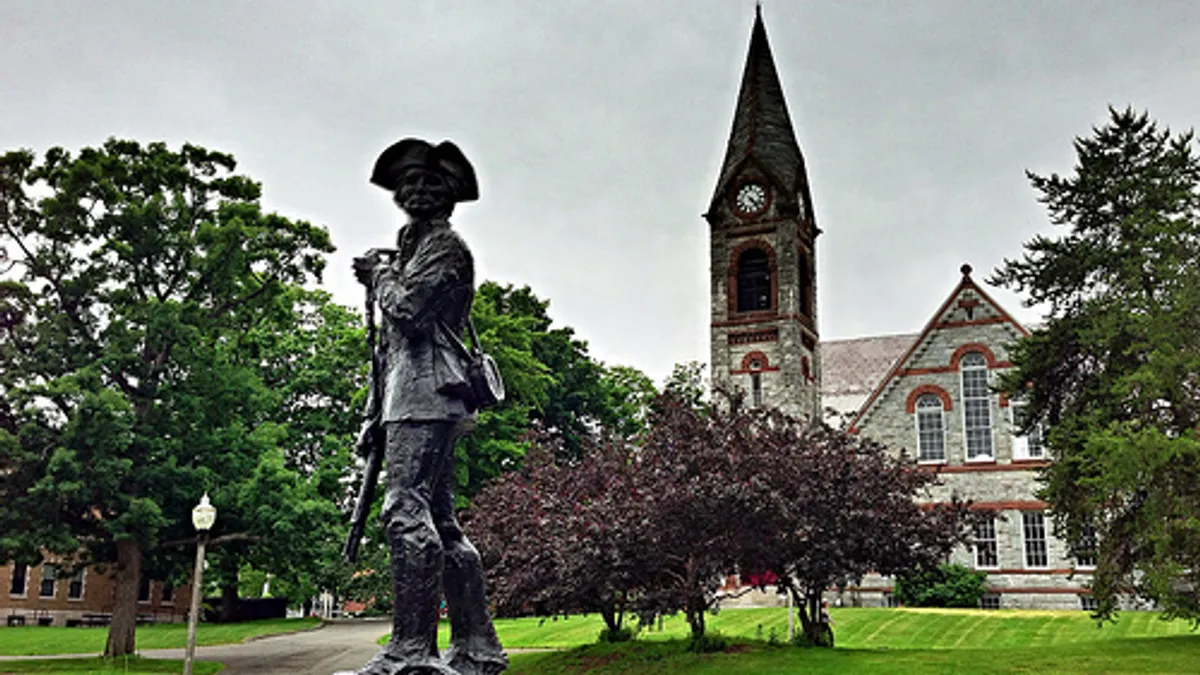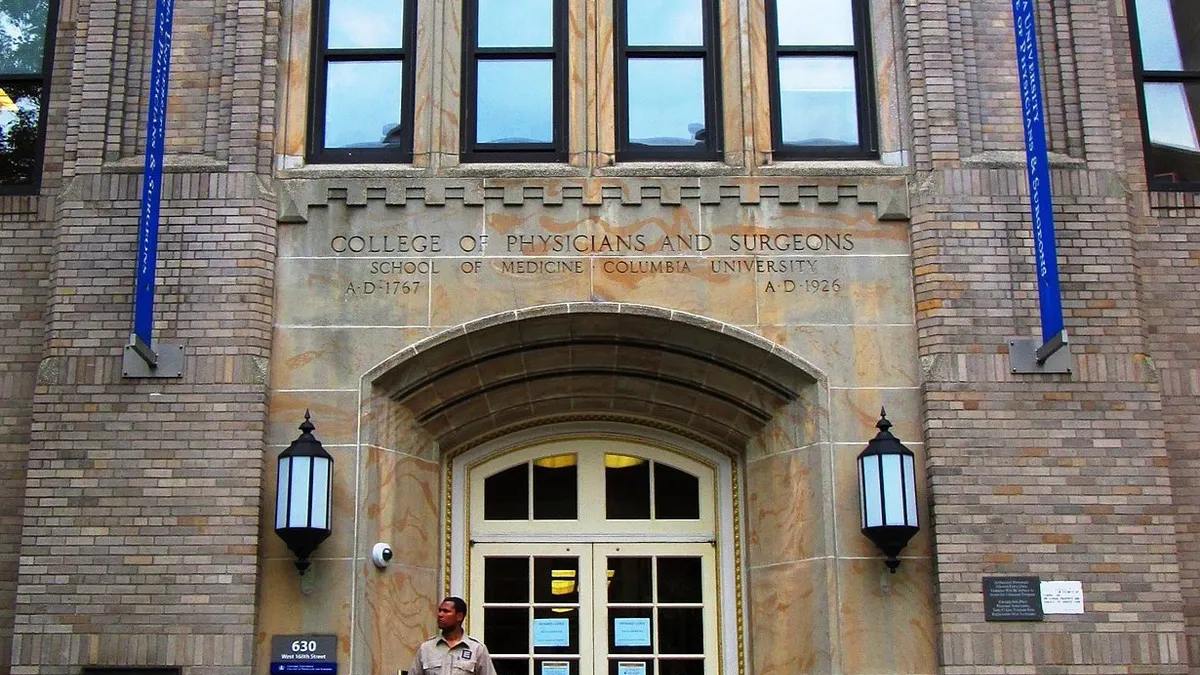Dive Brief:
- Faculty members and students at the University of Massachusetts Boston say that a deal to allow UMass Amherst to buy embattled private Mount Ida College is a slap in the face in the midst of budget cuts to the metropolitan campus, according to the Boston Globe.
- UMass Amherst will assume Mount Ida's estimated $50 to $70 million of debt in exchange for its land and assets to turn the campus into an experiential learning outlet for students. This transaction comes as the Boston institution, which is among the UMass system's most diverse campuses, struggles to reconcile staff layoffs and construction costs with decreasing resources from the state.
- System leaders said each campus has financial autonomy to expand if resources allow. “The system wouldn’t prevent UMass Amherst from developing a campus that they’ve worked hard at for years, UMass System President Martin T. Meehan told the Boston Globe. "They have the capacity to acquire this. If Boston wanted to acquire a parcel and had the capacity, they could do it as well,” Meehan said.
Dive Insight:
In higher education, there is always the notion that winners and losers are typically divided by campus size, brand and capacity for growth. Systems don't usually have infighting along these lines, but there are examples such as the University of Texas System trying to expand into downtown Houston in 2017 against the protests of the University of Houston, which has now drawn the attention of state lawmakers.
Colleges and universities are businesses trying to figure out ways to expand in place tha may be underserved by a lack of, or under-performance of area campuses. If it is not physical expansion into areas of growing population or prime real estate, it comes in the form of satellite settings in office buildings that serve to attract working professionals or continuing learners for degrees that are in demand for respective regions. An example of this growth, which some would classify as mission creep, is the University of Maryland College Park campus' pseudo-merger with the University of Maryland, Baltimore campus.
This is the uphill battle that smaller colleges will have to face in the coming years; the notion that competition is not only from institutions outside of a state system but those within it. The prize is the acquisition of assets, student engagement, real estate and industrial exposure that can help large flagships contend with fluctuating markets that impact endowment returns, and the need to compete with flagship campuses in bordering states. Smaller institutions must confront this reality by marketing programs of strength, ease of geographic access and professional pipeline.









